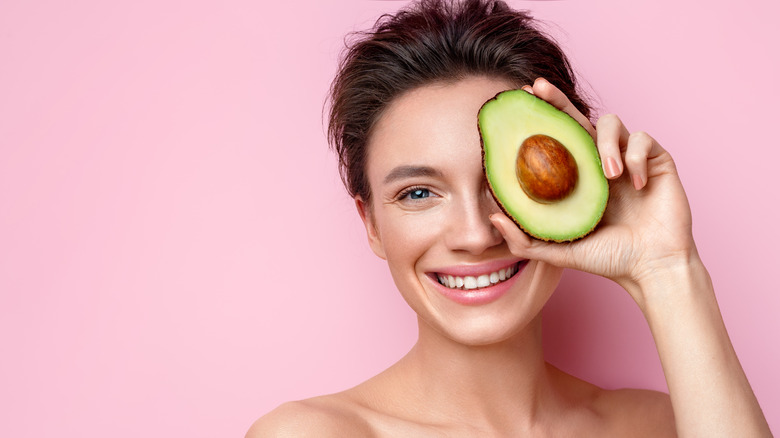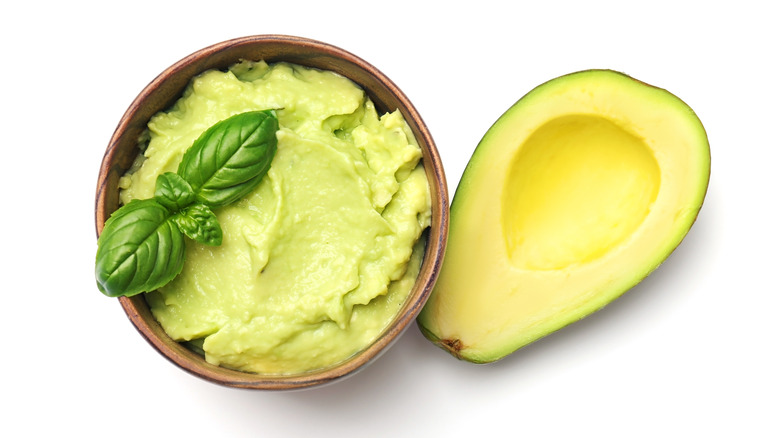This Is Why Avocados Are So Beneficial For Women
Do we really need a reason to love avocados? They're buttery, delicious, and pair fabulously well with margaritas. Case closed. But in case your love affair with avocados has made you wonder if they might be just too delicious to be good for you, relax and read on. It turns out that what tastes like an indulgence happens to be chockfull of nutrients that every woman needs.
First off, let's talk about fat. Sure, avocados are high in fat, but it's mostly in the form of healthy monounsaturated fatty acids. These fats help nourish hair, skin, and nails while supporting overall health in a myriad of ways, according to Women's Health Magazine.
Registered dietitian, Sonya Angelone, tells the magazine, "The fat in avocados helps increase the absorption of fat-soluble vitamins and other healthy plant compounds. They can also lower inflammation, lower the insulin rise after meals, and help you feel more satisfied and more likely to eat less at the next meal."
Avocados are packed with vital nutrients
Aside from a good dose of healthy fats, avocados are packed with other nutrients, including vitamin K and potassium, which are important for maintaining bone health and blood pressure. Their phytochemical content also goes a long way with supporting good vision (via Medical News Today). They also contain folate, which is essential for a healthy pregnancy. Some studies even suggest that avocados may have anti-cancer and anti-depressant properties.
But is too much of a good thing ever a bad thing? One downside to this luscious fruit is that it contains around 21 grams of fat (around 250 calories) for an average-sized avocado. Sonya Angelone says, "Women on an average diet need about six fat servings per day—or the amount of fat in one avocado," (via Woman's Health Magazine). If weight-gain is a particular concern, it can help to limit your intake to half an avocado per day. She also adds, "It's a matter of how you want to allocate your daily fat servings." So, go ahead and enjoy avocados regularly, but you also may need to eat other fats more sparingly.


